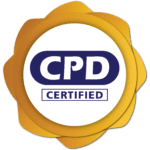



Overview
Reason For Choosing Our Teacher Training Bundle Course?
- The course is self-paced and accessible from anywhere.
- High-quality study resources that are simple to understand.
- Experts in the industry created the course.
- After each module, an MCQ quiz will test your knowledge.
- Assessment results are generated automatically and instantly.
- Support is available around the clock by live chat, phone call, or email.
- You will receive a free PDF certificate as soon as you finish the course.
Requirements for Admission
This bundle course has no requirements because it does not need any advanced knowledge or abilities. Students who want to take this course must complete the following requirements:
- Good proficiency in the English language
- Must be energetic and self-driven
- Basic computer knowledge
- A minimum of 16 years of age is needed
Assessment Procedure
You will get automated MCQ quizzes after finishing each module of courses. To go to the next module, you must finish the quiz activity and score at least 60%. You will be eligible to obtain certification once you have completed all of the courses in this manner.
Certification
Unified Course will deliver you a Certificate of Completion once you complete this MCQ exam. It will serve as documentation of your considerable professional progress. The certificate is in PDF format and may be downloaded for free. On request, a printed version is also available. It will also be sent to you through courier for £13.99.
Course 1: Teaching Assistant
Module 01: Roles and Responsibilities of the Teaching Assistant
Module 02: Working in the School
Module 03: Working in the Classroom
Module 04: Promote Children and Young people’s Positive Behaviour
Module 05: Support Children and Young People’s Health and Safety
Module 06: Communication and Professional Relationships with Children, Young People and Adults
Module 07: Develop Professional Relationships with Children, Young People and Adults
Module 08: Promote Equality, Diversity and Inclusion in Work with Children and Young People
Module 09: Understand How to Safeguard the Wellbeing of Children and Young People
Module 10: Support Learning Activities
Module 11: Schools as organisations
Module 12: Support Assessment for Learning
Module 13: Engage in personal development in children’s and young people’s settings
Module 14: Understand Child and Young Person Development
Module 15: Support Children and Young People to Achieve Their Education PotentialModule 16: Support Children and Young People to Make Positive Changes in Their LivesModule 17: Facilitate the Learning and Development of Children and Young People through Mentoring
Course 2: EYFS Teaching Diploma
Module 01: An Overview of EYFS
Module 02: Significance of Early Years in Development
Module 03: Teaching Techniques Focusing EYFS
Module 04: Curriculum for EYFS Teaching
Module 05: EYFS Teaching Career
Module 06: Fostering Learning and Development
Module 07: Children Having Special Education Needs or Disabilities
Module 08: Guiding Parents to the Early Years Foundation Stage
Module 09: Safety Requirements
Module 10: The EYFS Educational Philosophies and Privileges
Module 11: The Process of Registration, Inspection, and Quality Improvement
Module 12: EYFS Framework in 2021
Module 13: Finding Work as an EYFS Teacher
Course 3: Level 2 Certificate in Preparing to Work in Adult Social Care
Module 01: Primary Education in the UK
Module 02: Responsibilities, Qualifications and Skills
Module 03: Initial Teacher Training
Module 04: Types of Schools in the UK
Module 05: Importance of Early Years in Development
Module 06: EYFS Teaching Techniques
Module 07: Teaching Primary English
Module 08: Teaching Primary Mathematics
Module 09: Teaching Primary Science, Design and Technology
Module 10: Teaching Other Primary Subjects
Module 11: Children Having Special Education Needs or Disabilities
Module 12: EYFS Framework in 2021
Module 13: Self-Management and Dealing with Stress
Course 4: Train the Trainer Course
Module 01: Assessing Needs
Module 02: Understanding Adult Learners
Module 03: Training Styles
Module 04: Understanding Today’s Learner
Module 05: Writing Instructional Objectives
Module 06: Writing an Instructional Plan
Module 07: Selecting, Designing, and Developing Active-Training Methods
Module 08: Delivering Training
Module 09: Using Visual Aids
Module 10: Working with Groups
Module 11: Using Creativity
Module 12: Evaluating Training
Module 13: Training across Cultures
Module 14: Storytelling as a Training Technique
Module 15: Using Technology in Training
Module 16: Training On the Job
Module 17: Training During Tough Times
Module 18: The Business of Consulting: Internal and External
Course 5: Communication Skills Course
Module 01: Introduction to Communication
Module 02: The Communication Skills
Module 03: Different Types of Communication
Module 04: Different Methods of Communication
Module 05: Styles of Communication
Module 06: Barriers to Communication
Module 07: Assessing Communication Competence: Relevant Criteria
Module 08: Seven Actions for Effective Communication
Module 09: Do’s and Don’ts of Effective Communication
Course 6: Level 7 Life Coaching
Module 01: Life Coaching Fundamentals
Module 02: The Process of Life Coaching
Module 03: Emerging Communication Skills
Module 04: Introduction to Neuro-Linguistics Programming (NLP)
Module 05: Mental Skills Development
Module 06: Physical Skills Development
Module 07: Body Language
Module 08: Emerging Organizational Skills
Module 09: Developing Creativity
Module 10: Improving Presentation Skills
Module 11: Developing Effective Negotiation Skills
Module 12: Managing Your First Impression
Course 7: Sports Psychology for Coaches
Module 01: Coaching Philosophy
Module 02: The Importance of Communication for Coaching
Module 03: An Overview of Mental Skills Training
Module 04: Goal Setting in Sport
Module 05: Imagery
Module 06: Relaxation and Energization
Module 07: Enhancing Mental Skills
Module 08: Energy Management
Module 09: Understanding Mental Plans
Course 8: Sports First Aid
Module 01: An Overview of Sports First Aid
Module 02: Preliminary Analysis
Module 03: Importance of Life-Saving Priorities
Module 04: First Aid for Frequent Injuries
Module 05: First Aid for Severe Injuries
Module 06: Injuries Caused by the Environment
Module 07: Understanding Medical Emergencies
Module 08: Points to Remember
Course 9: Dyslexia
Module 01: An Overview of Dyslexia
Module 02: Learning Difficulties Due to Dyslexia
Module 03: Impact of Dyslexia in the Educational Setting
Module 04: Helping Adults with Dyslexia
Module 05: Dyslexia in the Workplace
Module 06: Approaches in Dyslexia
Module 07: Dyslexia Strengths and Rewards
Module 08: Assessment and Evaluation of Dyslexia
Module 09: Dyslexia Friendly Learning Environment
Module 10: Relevant Laws for Dyslexia
Course 10: Asthma Awareness
Module 01: An Overview of Asthma
Module 02: Risk Factor for Developing Asthma
Module 03: Understand the Causes
Module 04: Prevention, Diagnosis and Treatment
Module 05: Managing Asthma
Course 11: Level 2 Award in Suicide Awareness
Module 01: Understanding Suicide
Course 12: Drug and Alcohol Awareness Training
Module 01: Introduction
Module 02: Historical Overview
Module 03: Nature of Addiction
Module 04: Policy Initiatives and Strategy in Alcohol and Drug Use
Module 05: Understanding Alcohol Abuse
Module 06: Drug Addiction & Abuse




